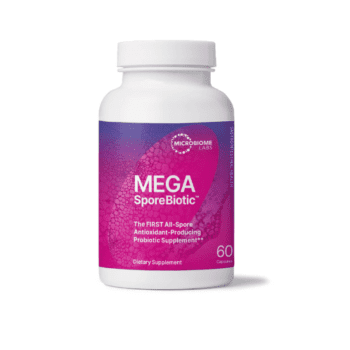
Meet Your Microbiome: The Human Microbiome and How to Optimize It
Meet Your Microbiome: The Human Microbiome and How to Optimize


Meet Your Microbiome: The Human Microbiome and How to Optimize

Benefits of Probiotics Including Improved Gut Health “Probiotics” has become

Gut Microbiome Health and the Gut-Immune System Connection: Part 2
What causes autoimmunity? There are many factors involved in the development of autoimmune conditions; ranging from chemical toxicants, heavy metals, viruses, bacteria, fungi, parasites, emotional stress, and even prescription drug use. These factors trigger autoimmunity through dysregulation of immune homeostasis and autoinflammatory activation of innate immunity (Campbell, 2014).
Leaky gut also plays a major role in the development of autoimmune conditions, which is due largely in part to diet. Our diet has changed drastically over the past 50 years and many new types of foods have been introduced to our palates. More chemicals and hormones are used in the production of our foods including, but not limited to: genetically modified crops, plasticizers such as bisphenol A, and artificial preservatives, colorings, and flavorings.
These changes in our food supply have attributed to the increasing prevalence of various autoimmune conditions such as type 1 diabetes, Crohn’s disease, multiple sclerosis and rheumatoid arthritis (Campbell, 2014). Suggesting, that there is a link between diet and autoimmune conditions.
In the most basic sense, having what is known as a “leaky gut” or intestinal permeability is the root cause of autoimmunity. Our intestinal tract is layered with an epithelial layer and a mucosal layer. Epithelial cells provide a major barrier for the gut. They also have secretory, digestive, and absorptive functions, and have receptors to facilitate their participation in immunological processes. This layer of epithelial cells is reinforced by tight junctions, which act as highly regulated entry points that open or close depending on signals from the immune system. If tight junctions are not working properly or the signaling given by the immune system isn’t either, autoimmunity is likely to develop.
Epithelial cells are in contact with mucosal cells and the Peyer’s patches, the immune portion of the gut. Peyer’s patches are critical for antigen sampling from the gut and regulating immune responses. Antigens that come in contact with this membrane will be sequestered via secretory IGA. If there are too many antigens in the intestine, they will be pushed through the epithelial layer. Doing so presents them to immune cells just behind the gut wall called basolateral immune cells. These immune cells then secrete inflammatory mediators into the body. The body then thinks there is a huge infection in the gut and inflammation will spread throughout the body to all mucosa through cytokines, interleukin and dendritic cells. Specifically, IgA and IgM derived from T cell dependent and T cell independent activation of B cells. Differentiation of B cells into immunoglobulin secreting plasma cells are crucial for the regulation of antigens crossing the gut. This is imperative because too few T cells can impair the immune response whereas too many can cause a pro-inflammatory response.
Most importantly, T cells regulate the immune system. It is generally believed that adaptive immunity and an imbalance between the TH1 and TH2 immune responses are the key elements underlying the parthenogenesis of the autoimmune process. For example, it’s been found that the production of more Th17 is implicated in the parthenogenesis of rheumatoid arthritis, multiple sclerosis and inflammatory bowel disease (Fascona, 2005).
The key to all of this lies in the gut. Commensal bacteria induce CD4+ T cell differentiation (Campbell, 2014). When T cells are not regulated there is a slew of potential autoimmune issues.
Treg cells regulate the function of all other T cells. Tregs are responsible for suppressing the activity of autoimmune T cells while T cells designed to fight pathogens are up-regulated. Tregs are the key to reducing the incidence and symptoms of autoimmune disease. The interesting part is that Treg cells are induced by and controlled by (to some degree), the commensal gut bacteria.
The gut microbiome breaks down foods into short chain fatty acids, like butyrate, which inhibits histone deacetylate 6/9. This interaction will increase Treg function. When this interaction is inhibited, there is an increase in the function of Treg cells to regulate unfavorable immune responses such as autoimmunity, allergies, over inflammation and asthma.
Basically, there is a down regulation of T reg cells in autoimmune conditions. Interestingly, it’s been found that the bacteria that has the most potent stimulation of Tregs were spore-forming, Gram-positive bacteria.
Spores have been studied extensively and are one of the most widely used probiotics. They are capable of withstanding harsh temperatures, stomach acid, antibiotics, enzymes, and are carotenoid rich. Spores are found as part of the normal human commensal flora in the gut. They are well adapted to germinate in the small intestines, grow and proliferate and then re-sporulate the lower gastrointestinal tract. They digest resistant starches and non starch polysaccharides to short chain fatty acids which is important for immune function. Spores are also amazing immunomodulators, meaning they are capable of influencing the immune system, and are capable of reducing the occurrence of allergies, asthma, rheumatoid arthritis and other autoimmune conditions. Spores produce a significant number of potent antibiotics that control gut microbiome overgrowth of any single microorganism. Spores also reduce gut inflammation, meaning they help to correct T cell imbalances. Specifically, spores influence the stimulation of T cells in the gut thereby improving resistance to infections.
Autoimmune conditions can arise from a multitude of factors ranging from consuming non-nutritive foods, pathogens and toxicity, both externally and internally. This all culminates to impact the immune system and ultimately the gut. These factors allow for an increase in inflammation in the gut thereby forcing the immune system work extra diligently. This in turn causes the gut to become more permeable and induces leaky gut.
There are ways to reverse leaky gut and the risk for autoimmune conditions that it potentially presents. First, reduce the number of high caloric meals consumed. High caloric meals tend to lead to more inflammation. Second, increase the amount of secretory IGA in the gut. Third, diversify the microbiome.
Spores increase secretory IGA and increase the number of proteins that maintain tight junctions. Tight junctions are instrumental in maintaining the gut barrier. Having tight junctions working properly reduces the amount of work the immune system does in trying to eliminate pathogens. Spores also increase microvilli height in the intestine. This regenerates the intestine and improves the gut barrier as well.
Spores help induce the proliferation and up-regulation of Tregs, thereby supporting the suppression of autoimmune conditions. Therefore, spores prove to be a critical component in reversing autoimmune conditions.
Reference:
Campbell, A. W., (2014) Autoimmunity and the Gut. Autoimmune Dis.Published online 2014 May 13. doi: 10.1155/2014/152428
Fasano, A., and Shea-Donohue, T., (September, 2005) Mechanisms of Disease: the role of intestinal barrier function in the pathogenesis of gastrointestinal autoimmune diseases. NATURE CLINICAL PRACTICE GASTROENTEROLOGY & HEPATOLOGY VOL 2 NO 9. Link: www.nature.com/clinicalpractice/gasthep
Sunghoon, K., Young Yang, J., Lee, K., Oh, K. H. Gi, M., Kim, J. M., Paik, D. J., Hong, S., and Youn, J. (2009) Bacillus subtilis-specific poly-g-glutamic acid regulates development pathways of naive CD41 T cells through antigen-presenting cell-dependent and -independent mechanisms. International Immunology; 1 of 14. doi:10.1093/intimm/dxp065
ZenBiome™ Sleep is formulated to help clients deal with occasional...
An Exclusive Course with 10 Years of Microbiome
If you’ve ever wanted all of Kiran’s best
The toxicity and Detoxification Masterclass covers a wide
19 Leading Experts Share Cutting-Edge Science, Effective Practices,
Autoimmune Masterclass brings together 17 of the world’s
If you get fatigued, flushed, or foggy after...

MegaSporeBiotic™ is a 100% spore-based, broad-spectrum probiotic shown...
MegaSporeBiotic™ Gummies are a 100% spore-based proprietary probiotic...
MegaMucosa is the first complete mucosal support supplement...

Meet Your Microbiome: The Human Microbiome and How to Optimize It On and in the average human, there reside approximately

Benefits of Probiotics Including Improved Gut Health “Probiotics” has become quite the buzzword – with countless products and supplements proudly

Gut Microbiome Health and the Gut-Immune System Connection: Part 2 Lower GI The diverse community of microbes in your digestive

Gut Microbiome Health and the Gut-Immune System Connection: Part 1 Upper GI The message is out: gut health is critical